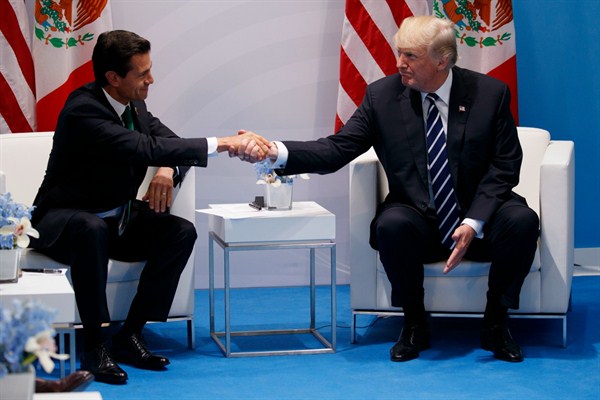President Donald Trump’s desire to be true to his domestic political base while offering some concessions to policy experts is settling into a pattern. On climate change, relations with Mexico, the Iran nuclear agreement and Cuba, the president has so far been willing to make tactical shifts while keeping some superficial semblance of his campaign promises. It is not a serious or sustainable way to make national security policy.
This past week, the transcripts of Trump’s early exchanges with the leaders of Mexico and Australia were released—and the foreign policy community gasped. The leaked conversations provided unexpected insights into the president’s very casual commitment to the content of his campaign promises, alongside his nervous attention to the public image that won him support with his core base of voters. It’s now clear that this approach makes for bad policies.
Trump may think he’s found some useful compromises between the ideologues who promote his disruptive agenda and the career professionals who work to persuade him of the merits of policy coherence and continuity. And his willingness to walk back his more extreme positions may offer observers some short-term relief that worst-case scenarios are not playing out. But the muddled middle ground he has occupied on these key issues does not reassure allies, promote stability in the international system, or enhance American power and influence in the world. Instead, this pattern only reinforces the image of an America that is uncertain about its role, even as the importance of values as a key component of that global role is degraded.

